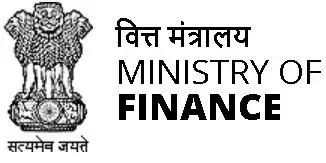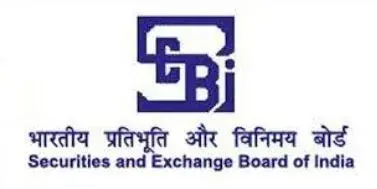India: Proposed Amendments in the Prevention of Money Laundering Act
India: Proposed Amendments in the Chit Fund Act, 1982
India: Amendments in Insolvency and Bankruptcy Board of India (Fast Track Insolvency Resolution Process for Corporate Persons) Regulations
India: SEBI allows Clearing Corporations at IFSCs to accept cash and cash equivalents
India: Proposed Amendments in the Prevention of Money Laundering Act

Source:www.finmin.nic.in
Introduction: Certain amendments have been proposed in the Prevention of Money Laundering Act, 2002 (hereinafter referred to as
“Act”) through the Finance Act, 2018.[1] These amendments seek to enhance the scope of the Act.
The Act was enacted in 2002 to combat money laundering. The Act imposes an obligation on banking companies, financial institutions and intermediaries to verify identity of clients, maintain records and furnish information in a prescribed form to the concerned
authorities under the Act. In furtherance to the same, the Act is being amended to make it more effective and to reduce problems found by the concerned authorities while prosecuting cases under the Act.
Amendments:
- Proceeds of crimeAs per Section 2 (1) (u) of the Act, ‘proceeds of crime’ means any property derived or obtained, directly or indirectly, by any person as a result of criminal activity. This term was amended in the Finance Act, 2015, to enable attachment and confiscation of equivalent asset in India where the asset located abroad cannot be forfeited.[2] This time, the scope of the term has been enhanced to include property equivalent to proceeds of crime held outside the country and such property can be proceeded against.
- BailThe conditions of bail shall now be applicable to all offences under the Act as against the previous provision wherein bail conditions were applicable to offences in which the scope of imprisonment is of more than 3 years.
- Corporate Frauds
Section 447 of the Companies Act, 2013 deals with punishment for fraud for any act, omission, concealment of any fact or abuse of position committed by any person with respect to affairs of a company. This section is now being included as scheduled offence under the Act. Therefore, such cases may now be reported by the Registrar of Companies to the Enforcement Directorate under the Act. Therefore, concerned authorities under the Act now have power to deal with such cases. - InvestigationsAs per Section 5 (1) of the Act, concerned authorities may issue order to attach property of a person who he has reason to believe to be in possession of proceeds of crime. Such order shall cease to have effect within 180 days from the date of its issuance unless confirmed by the Adjudicating Authority under the Act. The Act is now being amended to further extend this period by 30 days to take care of delays if any in communication of judicial orders.
- Disclosure of informationA sub-new clause has been added to the existing clause 66 on disclosure of information wherein the Director appointed under the Act may furnish to any officer performing functions under Government or under any law relating to tax or prevention of illicit traffic any information received or obtained by such Director.The new clause provides clear guidelines to share information relating to contraventions of other laws noticed during investigation with concerned authorities under applicable Acts. This will facilitate exchange of information among agencies. This shall enable exchange of information among agencies and enhance effectiveness
- Restoration of propertyAs per section 8(8), any property confiscated by the government may be restored to claimant with legitimate interest in such property only after the trial is complete. This section is now amended t o consider the claims of the claimants to restore property even during trial in the prescribed manner.
_________________________
[1]Available at http://pib.nic.in/newsite/PrintRelease.aspx?relid=176084
[2]Available at http://pib.nic.in/newsite/PrintRelease.aspx?relid=145129
India: Proposed Amendments in the Chit Fund Act, 1982
The Union Cabinet has given its approval to introduce the Chit Funds (Amendment) Bill, 2018 (hereinafter referred to as “Bill”) in Parliament wherein the following amendments to the Chit Funds Act, 1982 (hereinafter referred to as “Act”) have been proposed .[1]
Use of the word Fraternity Fund
A chit is defined under the Act as a transaction under which a person enters into an agreement with a specified number of persons that every one of them shall subscribe a certain sum of money by way of periodical instalments over a definite period and that each such subscriber shall, in his turn, as determined by lot or by auction or in such other manner as may be specified in the chit agreement, be entitled to the prize amount.[2] However, the proposed amendment mentions the use of the term “Fraternity Fund” to signify its inherent nature and distinguish its working from “Prize Chits” which are banned under The Prize Chits And Money Circulation Schemes (Banning) Act, 1978.
Joining of subscribers through video conferencing
The Act prescribes that every draw [3] of chit shall be conducted in the presence of not less than two subscribers, and the minutes of the proceedings of every draw shall be prepared and signed by and at least two other subscribers who are present. The Bill proposes that the required subscribers may join through video conferencing.
Foreman’s commission
All chit funds consist of a foreman who under the chit agreement is responsible for the conduct of the chit and discharges powers and responsibilities as per the Act. The foreman is entitled to such amount not exceeding 5% of the chit amount as may be fixed in the chit agreement, by way of commission, remuneration or for meeting the expenses of running the chit.[4] The Bill proposes to increase the ceiling to 7%, as the rate has remained static since the commencement of the Act while overheads and other costs have increased manifold.
Applicability of the Act
As per Section 85 (2) of the Act, the provisions of the Act do not apply to any chit the amount of which, or where two or more chits were started or conducted simultaneously by the same foreman, the aggregate amount of which does not exceed INR 100. The Bill proposes that such limit may be prescribed by the State governments and may be increased from to time.
________________________
[1] Cabinet approves New Bill to ban Unregulated Deposit Schemes and Chit Funds (Amendment) Bill, 2018 available at
http://pib.nic.in/newsite/PrintRelease.aspx?relid=176666
[2] Section 2(b) of the Act
[3] Draw means the manner specified in the chit agreement for the purpose of ascertaining the prized subscriber at any instalment of the chit
[4] Section 21 (b)
India: Amendments in Insolvency and Bankruptcy Board of India (Fast Track Insolvency Resolution Process for Corporate Persons) Regulations

Source : www.ibbi.gov.in
The Insolvency and Bankruptcy Board of India has amended the Insolvency and Bankruptcy Board of India (Fast Track Insolvency Resolution Process for Corporate Persons) Regulations, 2017 with effect from February 7, 2018, and has brought into force the Insolvency and Bankruptcy Board of India (Fast Track Insolvency Resolution Process for Corporate Persons) Regulations, 2018[1]. The salient features of the new regulations have been discussed hereunder.
Appointment of registered valuers
The resolution professional shall within seven days of his appointment, appoint one registered valuer to determine the fair value and the liquidation value of the corporate debtor. Fair value means the estimated realizable value of the assets of the corporate debtor, if they were to be exchanged on the insolvency commencement date between a willing buyer and a willing seller in an arm’s length transaction, after proper marketing and where the parties had acted knowledgeably, prudently and without compulsion. Liquidation value means the estimated realizable value of the assets of the corporate debtor, if the corporate debtor were to be liquidated on the insolvency commencement date.
After the receipt of resolution plans, the resolution professional shall provide the fair value and the liquidation value to every member of the committee of creditors in electronic form, on receiving an undertaking from the member to the effect that such member shall maintain confidentiality of the fair value and the liquidation value.
Invitation of Resolution Plans
The resolution professional shall issue an invitation, including evaluation matrix, to the prospective resolution applicants to submit resolution plans. Evaluation matrix means such parameters to be applied and the manner of applying such parameters, as approved by the committee of creditors, for consideration of resolution plans for its approval. The resolution professional may modify the invitation, the evaluation matrix or both with the approval of the committee.
Resolution plan
A resolution plan shall provide for the measures, as may be necessary for insolvency resolution of the corporate debtor for maximization of value of its assets, including but not limited to transfer of all or part of the assets of the corporate debtor to one or more persons, sale of all or part of the assets whether subject to any security interest or not, the substantial acquisition of shares of the corporate debtor, or the merger or consolidation of the corporate debtor with one or more persons, satisfaction or modification of any security interest, obtaining necessary approvals from the Central and State Governments and other authorities.
Submission of Resolution Plan
The resolution professional shall submit the resolution plan approved by the committee of creditors to the Adjudicating Authority, at least fifteen days before the expiry of the maximum period permitted for the completion of the fast track corporate insolvency resolution process, with the certification that the contents of the resolution plan meet all the requirements of applicable laws and that the resolution plan has been approved by the committee of creditors.
__________________
[1]http://ibbi.gov.in/webadmin/pdf/whatsnew/2018/Feb/Fast%20
Track%2007022018_2018-02-07%2023:03:05.pdf
India: SEBI allows Clearing Corporations at IFSCs to accept cash and cash equivalents

Source : www.sebi.gov.in
Background:
In furtherance of detailed guidelines for International Financial Services Centres (hereinafter referred as ‘IFSC’), released on March 27, 2015,[1] for facilitating and regulating financial services relating to securities market in an IFSC, the Securities and Exchange Board of India (hereinafter referred as ‘SEBI’) vide circular[2] dated November 28, 2016, has clarified the position regarding the acceptance of bank guarantees by Clearing Corporations in IFSCs. As per the said circular, SEBI has now allowed Clearing Corporations located at IFSCs to accept cash and cash equivalents as trade collateral.
Eligible collateral:
SEBI has clarified that for the purposes of eligible collateral for trades in all product categories, the Clearing Corporations located in IFSCs shall be permitted to accept the following:
- Cash and cash equivalents;
- Indian securities held with foreign depositories;
- Foreign securities including units of liquid mutual funds; and
- Gold.
Also, SEBI has stated that regarding acceptance of cash and cash equivalents, the Clearing Corporations may accept foreign currencies as may be decided by them from time to time, term deposit receipts and bank guarantees issued by banks located in IFSC. Further, SEBI has also clarified that cash and cash equivalents shall form at least half of the total liquid assets at all times.
Mandatory steps to be taken by Clearing Corporations:
- Essential actions for putting in place systems for implementation of the circular, including necessary amendments to the relevant bye-laws, rules and regulations;
- Bringing this circular to the notice of their members and also disseminate the same on its website; and
- Informing SEBI about the status of implementation of this circular in the Monthly Report.
__________________
[1]Refer:
https://www.sebi.gov.in/legal/guidelines/mar-2015/sebi-international-
financial-services-centres-guidelines-2015_29457.html.
[2]Refer:
https://www.sebi.gov.in/legal/circulars/feb-2018/acceptance-of-bank-
guarantees-by-clearing-corporations-in-international-financial-services-centre-
ifsc-_37906.html.

